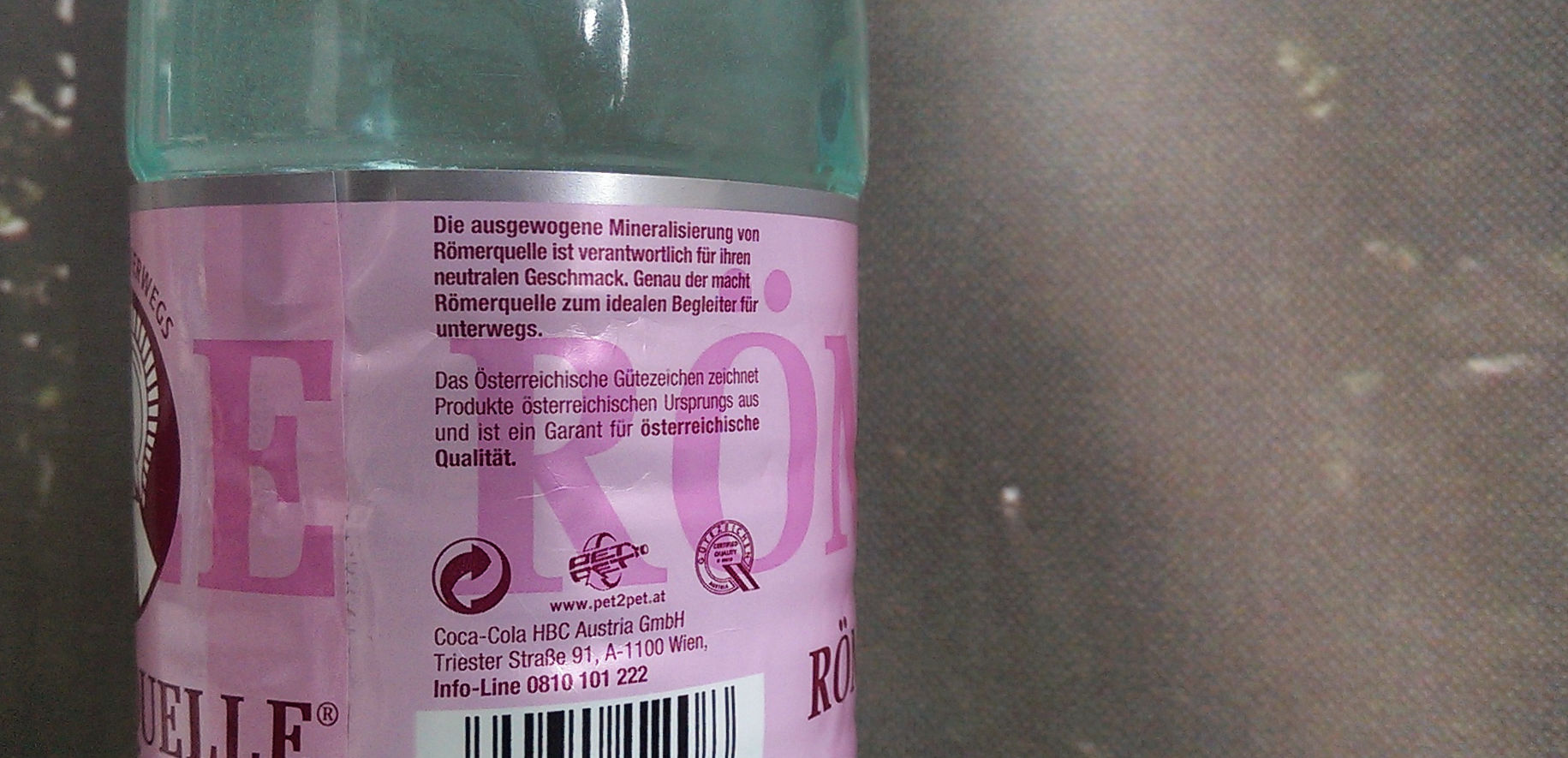by Erik Aarden

What can a plastic water bottle tell us about the specifics of a nation’s technological culture? This is a question I found myself thinking about, in late September 2014, on the day I arrived in Vienna to start a postdoc position at the Department of Science and Technology Studies. My plan for that first day was to move around the city a fair bit in an attempt to find myself a place to live (successfully so, it would turn out). As part of my equipment for the day, I brought along a small bottle of mineral water. Being bored on one of my many subway trips that day, I started studying the bottle, and found a bit of text emphasizing how the bottle’s Austrian quality stamp indicates the water’s Austrian origins and guarantees its Austrian quality. That struck me as a lot of ‘Austrian’, which surprised me and made me wonder about the kinds of guarantees ‘Austrianness’ apparently attaches to mineral water. What does it mean to not just put a stamp on the water’s quality, but to make this quality deliberately Austrian?
At this point I should probably confess that I did not have very specific ideas about how Austrians feel about water quality before coming here. Nevertheless, my encounter with the water bottle made me think about questions that interest me in my research, even though I do not (yet) focus on Austria or plastic water bottles. I’d therefore like to reflect on my first impressions of Austria in the particular context of how the country performs and imagines its identity and desires in relation to science and technology. So this set of reflections shows me dipping my toes into a new environment that I am trying to make sense of; they bring together some early observations of a particular technological cultural of which I am now both part and observer. How does wondering about plastic water bottles help me make sense of this new environment?
Over the next few weeks, I would come to see this question in a new light, beginning to consider the notion of ‘environment’ central. The quality of the water could be guaranteed, so it seemed, because it was from Austria and therefore from a known and controllable environment. Or at least that is a thought that occurred to me as I made other observations. I was, for example, struck by the rather prominent presence of organic vegetables in supermarkets. One of them carries a house brand of organics that uses visuals in the color of the Austrian flag and is called Ja! Natürlich. The name obviously refers to the organic or ‘natural’ origins of the produce. Yet the word ‘natural’ also suggests that it is self-evident to buy (Austrian) organic – the brand name can roughly be translated as ‘Yes! Of course’. Again, a quality claim is tied to a reference to Austrian sovereignty in the production process.
While preparing some of my teaching, I found something of an explanation for this state of affairs in the form of a newspaper report on a recent Eurobarometer poll. This poll had asked citizens of various EU countries about attitudes towards science and technology and showed Austrians to be more skeptical than citizens of other countries. Thinking of my water bottle I considered a particular interpretation of these results: what if Austrian citizens value their autonomy and national sovereignty also when it comes to evaluating if they are willing to accept scientific and technological advances? What if the skepticism is about people’s wish to know where their water or food is coming from and to decide if they like it that way?
Of course, this particular interpretation of the things I observed while settling in here – and there are many more – did not develop in a vacuum. Some of my new colleagues have been analyzing Austrian attitudes to scientific and technological developments and ideas of national sovereignty for years. I had already read some of it, too, so I wasn’t entirely looking at a blank page. Nevertheless, I think my thoughts may raise some interesting points about how one might make sense of science, technology and society relations in new, largely unfamiliar places. My initial thoughts may be different from those of people more familiar with the place. Yet I still think my thoughts about water bottles open a window onto technological cultures, which complements a focus on the big political controversies. Perhaps this shows how just as much insight might be drawn from spending a subway ride thinking about the everyday objects that surround us.
Erik Aarden is postdoctoral university assistant with the STS Department at the University of Vienna. In his research and teaching he is interested in the relations between science and technology, socio-political orders and implications for distributive justice, seen through a comparative lens and with a focus on biomedicine.